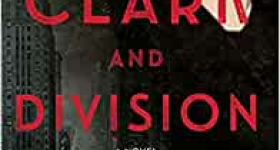Originally published at New America Media
by Ngoc Nguyen and Vivian Po
What drove Binh Thai Luc, 35, to be
charged this week with slaying five people in a San Francisco home last week?
The grisly murders have rocked the city and left investigators and the public
searching for a motive.
“We’re not discussing any potential motive for these killings,” stated Omid
Talai, spokesman for San Francisco District Attorney George Gascon, who said he
couldn’t comment further because the investigation is ongoing. Asked whether
gambling might be involved, he replied, “We’ll be exploring everything.”
News media reports have suggested that the killer may have been trying to
collect on gambling debts. Although gambling addiction affects every group,
researchers have found unusually high levels among Asians.
The website of the Responsible Gambling Council
(RGC) notes, “A regional study in California shows that 35 to 42 percent of
Asian American casino clientèle are problem gamblers, a much higher rate than
in the general population.”
Growing Problem Can Erupt in Violence
For the city’s Asian residents, the violent nature of the crime in their
communities – Luc, could face the death penalty, is of Chinese-Vietnamese
descent and the victims were all Chinese – has stirred suspicions that it could
be tied to gambling, a growing problem in the community that has sometimes
erupted in violence.
“Gambling is a huge problem in the Chinese community,” said Kent Woo, executive
director of the NICOS Chinese
Health Coalition located in San Francisco’s Chinatown. (NICOS is an acronym
for the group’s five founding organizations.)
Woo co-founded the Chinese Community Problem Gambling Project, a
California-wide program that runs a gambling hotline, offers counseling services
and does research and outreach.
A survey the group conducted in 1997 found that 70 percent of Chinese Americans
in San Francisco believe gambling is a problem in their community.
Woo said money issues stemming from problem gambling and crime often go hand in
hand.
“It’s actually somewhat common for our clients to report that they have gone to
loan sharks for money,” said Woo, adding that loan sharks scout casinos and
card rooms looking for desperate gamblers, who have run out of money. In some
cases, Woo continued, loan sharks bribe casino staff to track customers who are
losing money.
In June 2010, California Department of Justice’s Bureau of Gaming Control
cracked down on an Asian loan-sharking ring
(http://oag.ca.gov/news/press_release?id=1934) at the tribal casinos outside of
Sacramento.
The bureau arrested five lenders, who allegedly charged exorbitant interest
rates--5 to 10 percent every week--and threatened borrowers and their family
members to collect debts.
One lender, a member of a violent international gang in China, used his ties to
pressure borrowers by threatening their family members back home.
The number of people calling the NICOS hotline doubled to 300 calls from 2009
to 2011. Most of callers have a debt of about $50,000 dollars before they reach
out for help.
Why Asians?
Tony Nguyen, a counselor and business analyst at the Southeast Asian Community
Center in San Francisco’s Tenderloin district, said a lot of immigrants gamble
because they are exposed to it at a young age. It is culturally accepted in
Asian culture, and gambling is often part of holidays and celebrations.
Nguyen, who provides assistance to small businesses in need of loans and
start-up assistance, said his mainly Vietnamese clients struggle for employment
and tend to have lower-incomes. But, that doesn’t stop them from gambling away
money they can’t afford to lose.
“They go to work and get a paycheck. The first thing they do is go to the
casino and burn it,” he said.
“They always hope they can make the big bucks and once in awhile they make
money, but then they come back the next day [to the casino] to burn it again.”
Compulsive or pathological gambling come with a wide range of signs, such as
preoccupation, restlessness or irritability when attempting to stop,
"chasing" losses with more money, lying and performing illegal acts.
According to the RGC website, “The issue is more severe in the Asian American
community, with pockets of the population experiencing trends of acute problem
gambling -- especially in areas with high concentrations of casinos, such as
California and Connecticut.”
Nguyen, the business analyst with the Southeast Asian Community Center,
observed that problem gambling affects Vietnamese men of all ages. He also said
he sees many women gamblers, who are trying to make “quick money.”
Recently, Nguyen said, he’s seen a disturbing trend: Homeowners who resort to
gambling to come up with large sums of money to save their homes from
foreclosure.
Woo, the director of the Bay Area's NICOS health coalition, says Asians may be
attracted to gambling because of their immigration experience. People who are
willing to start a new life in another country are generally greater
risk-takers, and more likely to gravitate toward the risk-taking nature of gambling,
he said.
Casinos Make It Easy
Nguyen emphasized that the proliferation of casinos in the Bay Area has made it
easier for people to gamble without having to go to Reno, Lake Tahoe or Las
Vegas.
“There are so many casinos in the Bay Area now. People can go there anytime
they want until they lose all their money, until their last dollar,” he said,
adding that many casinos offer lines of credit to special customers.
“It's obvious that casino operators know they can make money off Vietnamese,
and that's why they provide free transportation, and sometimes other premiums,”
said Vu Hao Nhien, an editor for Nguoi Viet, a Vietnamese-language daily based
in Westminster, Calif.
“The casinos near Little Saigon would have been so empty on a week day, if not
for the Vietnamese, who are there all the time. It's gotten so that they even
serve pho and Chinese noodle soup,” Nhien said.
For some Asian immigrants, “casinos have become main social institutions,
replacing churches, family associations, restaurants, et cetera,” said Timothy
Fong, assistant clinical psychiatry professor and co-director of the Gambling
Studies Program at the University of California, Los Angeles. He spoke during a
University of Massachusetts, Boston, forum on problem gambling in the Asian
American community.
Jennie Hua, a counselor for NICOS’ gambling hotline, said gambling fills a void
in people’s lives.
"The main reason that Chinese men take on gambling is that they don't have
much social life or hobbies. Therefore, they choose casinos to kill the time,”
she said.
Also, Hua said, many seniors are attracted to casinos to fill their time:
“Their kids are moving away, they find that they don't have many friends to
hang out with, they then go to casinos."
Nam Paik, pastor of the Northern California Deaf Church based in Fremont,
Calif., has long worked with Korean-community members struggling with gambling
addiction. He recently launched a Korean-language
website where visitors can join an anonymous online forum to discuss their
problems with gambling.
"When Koreans first arrive in the U.S., they often find themselves
isolated from mainstream society and unaware of many of the recreational
diversions available,” said Paik. With Las Vegas and other major gambling
centers nearby, it becomes an easily available source of entertainment, he
added.
Family Impact
Although problem gambling can lead to violence in isolated cases, the more
typical impacts on families can still be devastating.
“I can see broken families, divorces, lost jobs I see that,” said Nguyen of the
Southeast Asian Community Center.
In a commentary published by Silicon Valley De-Bug/Viet Tide in 2010,
contributor Thuy Ngo described the fallout of her stepfather’s gambling
addiction of her family life in San Jose, Calif.
“I sometimes think his actions were a result of a long rocky marriage, feelings
of depression, and a loss of hope that things would ever get better. In the end
there was a lot of analyzing we all did, the what-ifs or the could-bes. But at
the end of my mom’s marriage to him, the finalization of their divorce was his
only wake-up call to his gambling addiction.”
Ngo concluded, “There was nothing that could get him to stop his addiction. I
think things could have gotten worse, and at least, we all survived.”
New America Media’s Aruna Lee, Andrew Lam and Summer Chiang contributed
reporting.








Comments